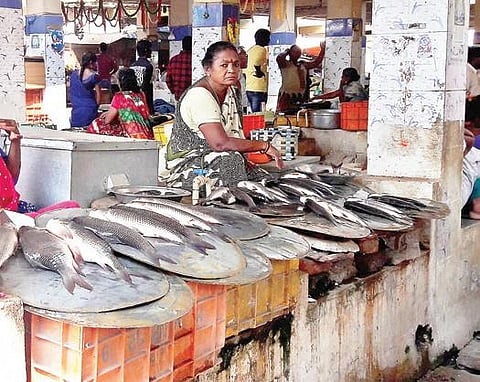

NELLORE: Amid the looming Covid crisis, pisciculture in Nellore district stands affected with no demand from other parts of the country.
Fish exports to neighbouring Tamil Nadu, Odisha and Telangana from Nellore district have plummeted.
Around 15 metric tonnes of fish has been produced across Nellore district every year, generating a revenue of Rs 400 crore. Farmers cultivate fish in freshwater ponds and local tanks. Cultivation of fish is taken up in 27 major tanks in the district. Around 75,000 families are solely dependent on pisciculture.
Harvesting of fish is held in the months of April, May, June and July every year. “Though there is a good price for Korameenu (Red Snapper), Rohu, Katla, and also Roopchand in the open market, there is no expected sale in this season due to the pandemic. With major hotels remaining closed, there were no orders from neighbouring Chennai, Odisha, Hyderabad and Bengaluru,” said K Dasaradharamaiah, a farmer from Buchireddypalem mandal.
Meanwhile, curfew restrictions have affected the export of fish. Envisaging huge demand for fish, farmers have started harvesting through mixed cultivation. Roopchand fish, which grows up to 70 to 100 gm per month, is a major player in mixed cultivation. But fall in demand has left the farmers in despair.
“Our attempts to export fish to other states have failed, as there was no logistics support. Traders have also not come forward to purchase the fish in this month. We expect at least some exports in June,” said M Suresh Reddy, a farmer from Allur mandal.
Meanwhile, Fisheries department officials suggested that the farmers halt the harvesting of fish. “The situation is expected to get better in June and July,” said sources in the Fisheries department.